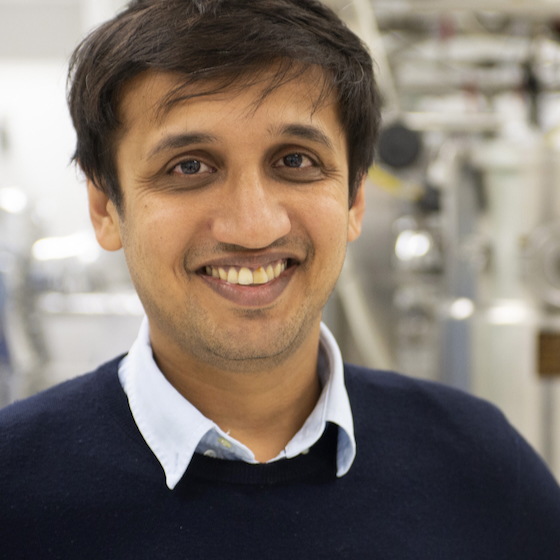
Tanmay Bharat, PhD
Tanmay A M Bharat is a programme leader in the Structural Studies Division of the MRC Laboratory of Molecular Biology (LMB). He and his group use electron tomography to study how surface molecules allow microorganisms (bacteria and archaea) to form multicellular communities. His goal is to unravel general principles governing multicellular interactions in microbes, to illuminate how emergent properties such as antibiotic tolerance arise within biofilms and microbiomes of pathogenic organisms such as Pseudomonas aeruginosa and Mycobacterium tuberculosis.
Tanmay graduated with a BA in Biological Sciences from the University of Oxford, UK. His studies were supported by a Rhodes Scholarship. He then undertook research at the European Molecular Biology Laboratory in Heidelberg, Germany for his PhD working with John A. G. Briggs. He subsequently joined the LMB in Cambridge to pursue post-doctoral research with Jan Löwe using cryo-EM to study molecules within bacterial cells.
After his post-doctoral appointment concluded, he was recruited to the Sir William Dunn School of Pathology, University of Oxford as a Wellcome Trust and Royal Society Sir Henry Dale Fellow. He moved back to the LMB as a programme leader in 2022. Tanmay has been awarded many prizes and fellowships. These include, in addition to the 2018 Vallee Scholar Award, the 2019 EMBL John Kendrew Award; the 2020 Philip Leverhulme Prize for Biological Sciences; the 2021 Eppendorf Award for Young European Investigators; the 2021 Lister Prize; the 2022 Colworth Medal from the Biochemical Society; the 2023 Fleming Prize from the Microbiology Society; and a Blavatnik Award for Life Sciences (Finalist) in the UK for 2024.
(Photo: MRC LMB Visual Aids)